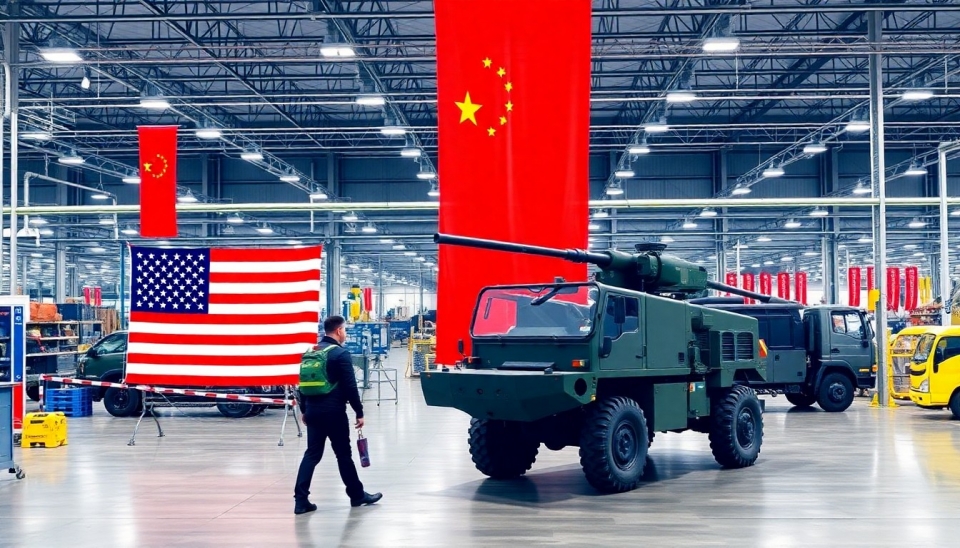
In a revealing analysis of U.S. technology supply chains, recent investigations have uncovered extensive involvement of Chinese military-affiliated companies within critical industries. This infiltration raises significant national security concerns and highlights the complex web of global trade relationships that link American technology firms with entities directly connected to China's military apparatus.
The findings stem from various reports and intelligence assessments indicating that several Chinese firms, which have links to the People's Liberation Army (PLA), are deeply integrated into the American tech ecosystem. These companies are not only suppliers of hardware and components but also play roles in software development and technological innovations.
Amid growing geopolitical tensions, particularly between the U.S. and China, legislators and national security officials are increasingly alarmed at the implications of such connections. They emphasize that the reliance on foreign suppliers for vital technologies poses risks, as these relationships could enable data breaches, intellectual property theft, and vulnerabilities in critical infrastructure.
Key players within the tech industry have been advised to scrutinize their supply chains more rigorously. This involves assessing supplier backgrounds to ensure compliance with security standards and minimizing any potential risks from entities with ties to foreign military operations. Legislative measures are also being discussed that could bring heightened scrutiny to any partnerships with firms linked to the Chinese military.
The challenge is compounded by the intricate nature of global manufacturing, where components produced in different parts of the world can end up in tech products sold in the U.S. This interconnectedness often obscures the original sources of these components, making it difficult to predict or mitigate threats effectively.
Furthermore, as American companies increasingly adopt advanced technologies such as artificial intelligence and machine learning, concerns arise over the parts and software they utilize, which may inadvertently originate from Chinese military-controlled firms. Even minor components can pose risks if they are compromised or if the data associated with them is accessed by unauthorized parties linked to the Chinese government.
The Chinese government has consistently maintained a strong interest in acquiring Western technologies, which it views as essential for advancing its economic agenda and strengthening its military capabilities. This has further intensified scrutiny over the extent to which U.S. companies may be unwittingly aiding these ambitions through their supply chain arrangements.
In conclusion, as investigations into the infiltration of Chinese military companies into U.S. technology sectors continue, both the public and private sectors must reevaluate their reliance on global supply chains. The drive for technological advancement should not come at the cost of national security, and proactive steps are necessary to ensure that American innovation remains secure from foreign adversaries.
<>#> #ChineseMilitary #USTech #SupplyChainSecurity #NationalSecurity #GlobalTrade #TechIndustry #Geopolitics #ForeignRelations #<
Author: Liam Carter




